MA RKETS AND GOVERNMENTS IN ECONOMIC HISTORY
A Series Edited by Price Fishback
Also in the series:
The Institutional Revolution: Measurement and the Economic Emergence of the Modern World
by Douglas W. Allen
THE CHARLESTON ORPHAN HOUSE
Childrens Lives in the First Public Orphanage in America
JOHN E. MURRAY
THE UNIVERSITY OF CHICAGO PRESS
CHICAGO AND LONDON
JOHN E. MURRAY is the J. R. Hyde III Professor of Political Economy at Rhodes College and the author of Origins of American Health Insurance.
The University of Chicago Press, Chicago 60637
The University of Chicago Press, Ltd., London
2013 by The University of Chicago
All rights reserved. Published 2013.
Printed in the United States of America
22 21 20 19 18 17 16 15 14 13 1 2 3 4 5
ISBN-13: 978-0-226-92409-0 (cloth)
ISBN-13: 978-0-226-92410-6 (e-book)
ISBN-10: 0-22692409-2 (cloth)
ISBN-10: 0-226-92410-6 (e-book)
Library of Congress Cataloging-in-Publication Data
Murray, John E., 1959
The Charleston Orphan House : childrens lives in the first public orphanage in America / John E. Murray.
pages. cm.(Markets and governments in economic history)
ISBN-13: 978-0-226-92409-0 (cloth : alk. paper)
ISBN-10: 0-226-92409-2 (cloth : alk. paper)
ISBN-13: 978-0-226-92410-6 (e-book)
ISBN-10: 0-226-92410-6 (e-book) 1. Charleston Orphan HouseHistory. 2. OrphanagesSouth CarolinaCharlestonHistory. I. Title. II. Series: Markets and governments in economic history.
HV995.C32C459 2013
362.732dc23
2012019387
 This paper meets the requirements of ANSI/NISO Z39.48-1992
This paper meets the requirements of ANSI/NISO Z39.48-1992
(Permanence of Paper).
Daughters of Carolina!...
you whose little prattlers are yet but tottering around your feet;
when you press them to your bosom...
thank God that they are not orphans,
cast upon the care and bounty of strangers,
bound to them by no stronger a tie than charity.
Rev. George Buist, An Oration, Delivered at the Orphan-House in Charleston, on the sixth anniversary of the institution, 1795
F OR SARAH AND ROSE
WITH LOVE
, .
Gospel of St. John
C ONTENTS
I LLUSTRATIONS
Figures
Tables
P REFACE
THE CITY OF CHARLESTON, ne Charles Town, has presented two different faces to the world from its founding in the late seventeenth century. It was the capital of the Carolina Low Country, a region from which valuable cargoes of tobacco, rice, and indigo, and later cotton, were transshipped to the greater Atlantic world. The planters who directed production of these valuable exports found it convenient to spend much of the year in the city, and so they built the famous Charleston single houses. In the exquisite balance and scale of these structures, many of which still stand and attract attention, the wealthiest of Americans announced their achievements in life.
At the same time, Charleston was home to about as many enslaved people as free people. Blacks had been present at the citys beginning, and a small population of free persons of color persisted in the city right up to the Civil War. Enslaved blacks provided the labor that built the wealth of Charleston, often while hired out from their owners. Many urban slaves learned a skilled craft, while others managed their owners households. Thus, paradoxically, urban slaves sometimes found themselves in a position of some responsibility. That responsibility led to a bit of autonomy but no change in their legal position. In the eyes of the law their status ranked somewhere between that of a white person and a mule. They were bound to their masters, and their masters heirs and assigns, for life, as were their children and their childrens children. This was the lot of about half of all Charlestonians.
A third group of people in Charlestons early history lacked the numbers and ostentation that might have placed them in the written historical record. These were whites too poor to own slaves, and in many cases too poor even to maintain their own abode. By a variety of estimates they constituted between 15 and 20 percent of the white population, or perhaps 8 to 10 percent of the city as a whole. Many worked in the lower end of the skilled trades. They lived with a very slight margin for error. The sudden death of a husband or wife, a chronic illness, or the growing realization that available resources could not feed all household members might lead an adult to conclude that a child would have to leave the family. When that adult brought the child to the Charleston Orphan House, both people entered this books story. In the Charleston Orphan House, the cityits elite, the white poor, and artisans and mechanicscreated a world of children, one of several worlds through which these children passed as they grew up. The Orphan House was a unique venture, the first public orphanage in the United States, and an amalgam of public and private efforts to simultaneously care for the very poor and promote white unity. The wealthy organized the institution, the artisan classes found prospective workers there, and it gave poor families an early form of social insurance. It offers a case study of localized social welfare provision in the specific context of the urban antebellum South.
This book follows these children and their families from the events and decisions that led them to the Orphan House, through the time that the children spent in the institution, onward either to restoration of the children to their natal families or to their apprenticeship to learn a trade, and, in a few cases, to their later adult lives. The distinctive aspect of this history of the poor is that much of it can be told either in or through their own words. Letters and petitions of the poor whites of Charleston show them to have been plucky and determined, even as they sought the aid of the institution. Parents relinquished their children with regret, maintained contact during their time in the Orphan House, brought them back into the family if possible, and followed them through their apprenticeship if not. Children themselves appear as generally sober and occasionally rambunctious, aware after they leave the Orphan House of their disadvantaged status, butand this is in the nature of the documentswilling to press masters, parents, and commissioners of the Orphan House to obtain their due.
My intention in this book is to let the children and their parents tell their own stories as much as possible. Rare are the historical documents in which law-abiding poor people appear, much less speak in their own words. These are not court cases, in which the poor appear as criminals. They appear here as ordinary, if unlucky, people, with little in the way of resources. They describe their own struggles to keep their families together after catastrophic loss, and to maintain loving bonds with children no longer under their roofs. Children and masters address questions of work and life of young adults. My hope is to present these people, as closely as possible, as they presented themselves, so that we might understand their lives and recognize their presence in one small part of the United States, from the era of Washington to the firing of Fort Sumter.
A NOTE ON EDITING PRACTICES
The Charleston Orphan House collection at the South Carolina Room, Charleston County Public Library, is an immense and priceless cache of records from the 1790s onward. The start of the Civil War marks a convenient end point of this study partly because the Orphan House personnel experienced much of the war from Orangeburg, partly because the records, particularly those relating to apprenticeship, declined in quality after the war, and partly because the early republic (1790c. 1820) and antebellum (c. 182061) eras yield a cohesive periodization.
Next page
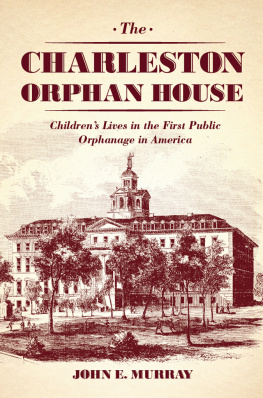

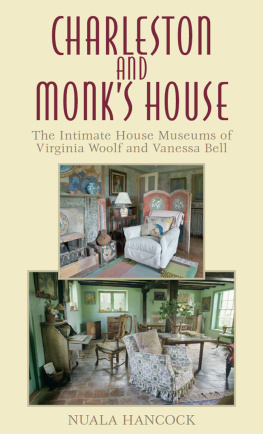
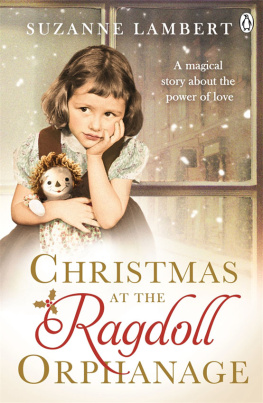
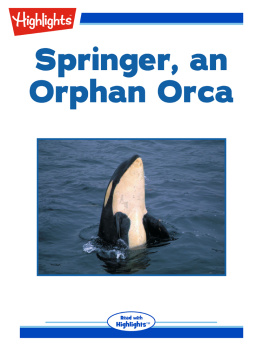

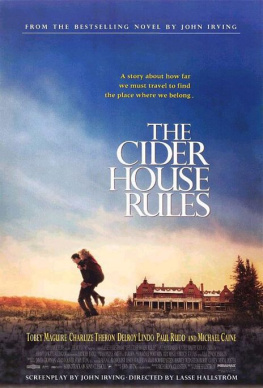
 This paper meets the requirements of ANSI/NISO Z39.48-1992
This paper meets the requirements of ANSI/NISO Z39.48-1992